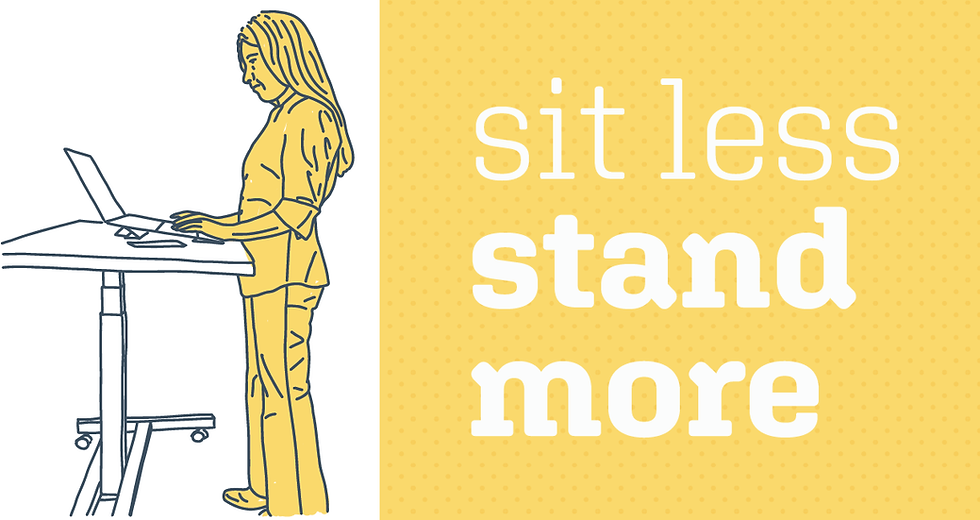NEAT Tricks from Blue Zones for Longer, Healthier Days
- Bruce Stanley

- Jan 31, 2023
- 3 min read
Updated: Jul 23, 2025
Are your days NEAT enough?
Why is it that citizens of certain places live significantly longer, healthier lives than the rest of us? These 'blue zone' places include Sardinia, Okinawa, Icaria in Greece, the Nicoya Peninsula in Costa Rica and a Seventh-day Adventist community in California. What they have in common are some fairly simple lifestyle factors that contribute to the longevity of their residents, such as a diet rich in fruits and vegetables, regular physical activity, and a strong sense of community.

I suppose we could all move to blue zones and enjoy the benefits, but perhaps there is another way. If you don't live in a blue zone, hope is not lost; maybe you can incorporate some of the elements into your daily life. I have been researching the physical activity aspects of the blue zone lifestyle, which describes the energy expended for everything we do that isn't sports-like exercise. It's called NEAT, which stands for Non-Exercise Activity Thermogenesis.
Enhancing Daily Life Through NEAT: Practical Strategies for your own Blue Zone.
NEAT can significantly influence overall energy expenditure and weight management, while also promoting healthier muscles, joints, and balance. For example, in Okinawa's Blue Zone, older adults typically engage in activities like gardening, walking, and cleaning—all forms of light physical activity. Similarly, in Sardinia, older adults often walk extensively, tend to livestock, and work the land, all of which contribute to their increased NEAT.
This is where I'd like your input. I'm writing the next Day Crafting workbook on self-care, and I want to include some practical ideas. If we designed our environments, situations, and lifestyles to incorporate more NEAT, what could we do?
Here are some examples I've compiled.
Park further away so you have to walk a bit more.
Don’t use the remote control or place it on the other side of the room, so you need to get up to use it.
Buy fewer ingredients more often; walk to local shops.
Cook from scratch, which takes longer and involves moving around while you cook.
If you’re desk-bound, get a standing desk. Use the toilet on a different floor or one that is further away.
Walk and cycle more; drive less.
Replace mechanical conveniences.
Rake the leaves, trim the hedge with shears, mix food by hand.
Move every 20 minutes or so. Set an alarm on your watch to remind you.
Have walking meetings. Walk while you chat with a friend.
I'd love to know what you would add. I'm looking for ideas that encourage us to move more. If NEAT activity is left to us feeling like it then I think that we're less likely to incorporate it – unless you're temperamentally wired to put more NEAT into your day. Please let me know your suggestions.
The Practice
There are several ways that people who don't live in Blue Zones can Day Craft their lifestyles to be more like those of the people who do:
Follow a plant-based diet: Blue Zoners typically consume a diet high in fruits, vegetables, whole grains, and legumes, while eating little meat and processed foods.
Move Naturally: Blue Zoners usually participate in regular, low-intensity physical activities such as walking, gardening, and other light exercises. People should try to include more of these activities into their daily routines.
Prioritise social connections: Blue Zoners tend to have strong social bonds and a sense of purpose, which can be fostered through joining clubs or groups that match their interests, volunteering, and spending quality time with friends and family.
Find ways to de-stress: Blue Zoners tend to have low levels of chronic stress, which can be supported by practices such as yoga, meditation, or mindfulness.
Build a sense of community: Blue Zoners live in close-knit communities where people look out for each other. People can foster this by volunteering, joining clubs or groups, or taking part in neighbourhood events.
Take a nap: Napping is a common practice in Blue Zones, and people can try taking short naps during the day to improve energy and productivity.
Remember that not everyone can replicate every aspect of a Blue Zone lifestyle, but adopting even a few of these elements can have a profoundly positive impact on overall health and well-being.









Comments